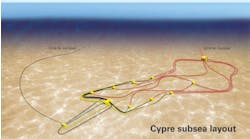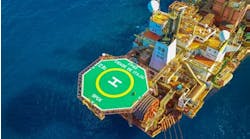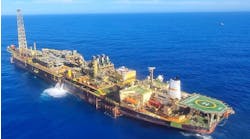Offshore staff
ABERDEEN, UK – Former Wood Group Chairman Sir Ian Wood has issued interim recommendations on new ways to maximize recovery of the UK’s offshore oil and gas reserves.
These, he claims, could deliver at least 3-4 Bboe more over the next two decades than might otherwise be recovered, providing more than £200 billion ($317.6 billion) additional value to the UK economy.
Wood’s interim review was commissioned in June by Edward Davey, Britain’s Secretary of State for Energy and Climate Change. He is due to deliver his final report early next year.
An increasingly diverse range of operators are investing at record levels in new UK offshore, Sir Ian pointed out, yet exploration and production rates are falling, with activity focused on smaller fields.
“The UKCS has changed radically over the last 20 years. While some regions are mature, there are still frontier areas and significant emerging potential where technology is opening important new plays.
“I have interviewed 40 active companies in the oil and gas industry representing more than 95% ofUKCS production, key government figures, and regulators from neighboring regimes such as Norway and the Netherlands. The evidence is clear. We need to strengthen the capacity and capability of our stewardship regime to enhance collaboration significantly across the North Sea if we are to meet the challenging demands of maturity.”
The report recommends a tripartite accord between HM Treasury, a new regulator, and the industry, each with their role to play:
- The Department of Energy & Climate Change (DECC) to establish a new arm’s length regulatory body, funded by industry, to take on the stewardship role for the next phase of the UKCS. This body would be equipped with additional powers to achieve greater coordination of activities and collaboration, closer in style and influence to neighboring North Sea regulators. It would work with industry to develop strategies in areas such as exploration, third-party access to infrastructure, production efficiency, anddecommissioning. It would also have the right to attend operator consortia management meetings.
- Industry would have to sign up to the principles of the new strategy and commit to collaboration in development of regional hubs and sharing of infrastructure. Another goal would be to reduce the complexity and delays in current legal and commercial processes that can hinder progress on developments and efficiencies.
The UKCS fiscal regime is not included in the scope of this report, but all those interviewed acknowledged that HM Treasury has a critical role in securing the industry’s future. The interviewees applauded the fiscal allowances introduced in recent years, and underlined the importance of HM Treasury working closely with DECC and industry to maximize economic recovery.
Sir Ian added: “A better resourced arm’s length regulator with a strong economic focus, capable of attracting top-quality personnel with appropriate industry experience, will be able to work more closely with the industry and facilitate the development and progress we need. This will require fundamental changes in operator behavior but, as my interviews confirmed, they are clearly up for it.”
Malcolm Webb, CEO of industry association Oil & Gas UK, responded as follows to the report’s findings:
“The UKCS is a highly competitive environment, with a record £13.5 billion [$21.44 billion] being invested in 2013. Yet the industry has changed considerably over the past 20 years. It is much more complex, with the range of companies active in the North Sea growing in diversity. The number of fields in operation has climbed from 90 to over 300 since the 1990s while the average size of new discoveries and daily production rates are falling.
“The industry made it clear in its response to Sir Ian Wood’s consultation that there is also an appetite to examine how we do business here and recognition of the need for a fundamental change of approach if we are to secure the next phase of offshore oil and gas development in the UK.
“The creation of a well-resourced arm’s length regulator will, we believe, provide the single-minded focus required to deliver the maximum economic benefit for the industry and the country in this critical next phase of the UKCS’ life. But there is no time for delay.
"To maintain high investment in this basin and prevent premature decommissioning of infrastructure, the government needs to move swiftly ahead with these proposals.”
11/12/2013


